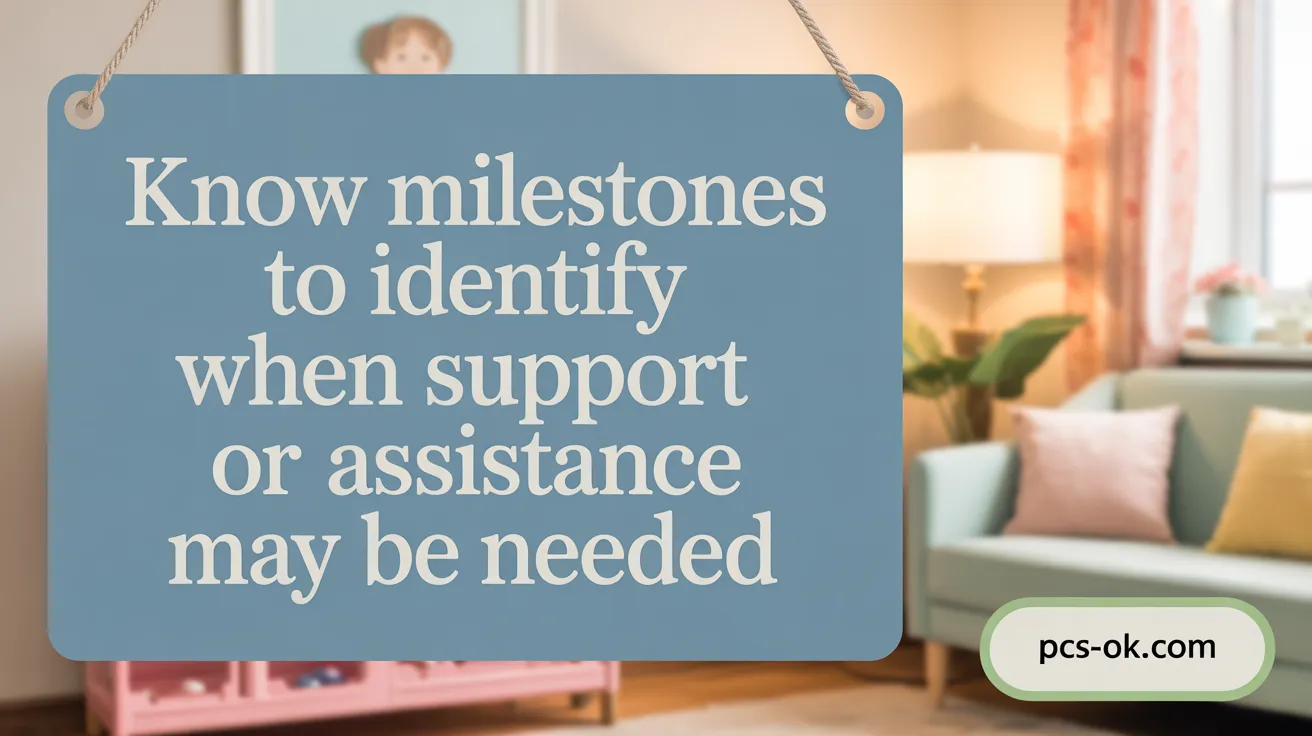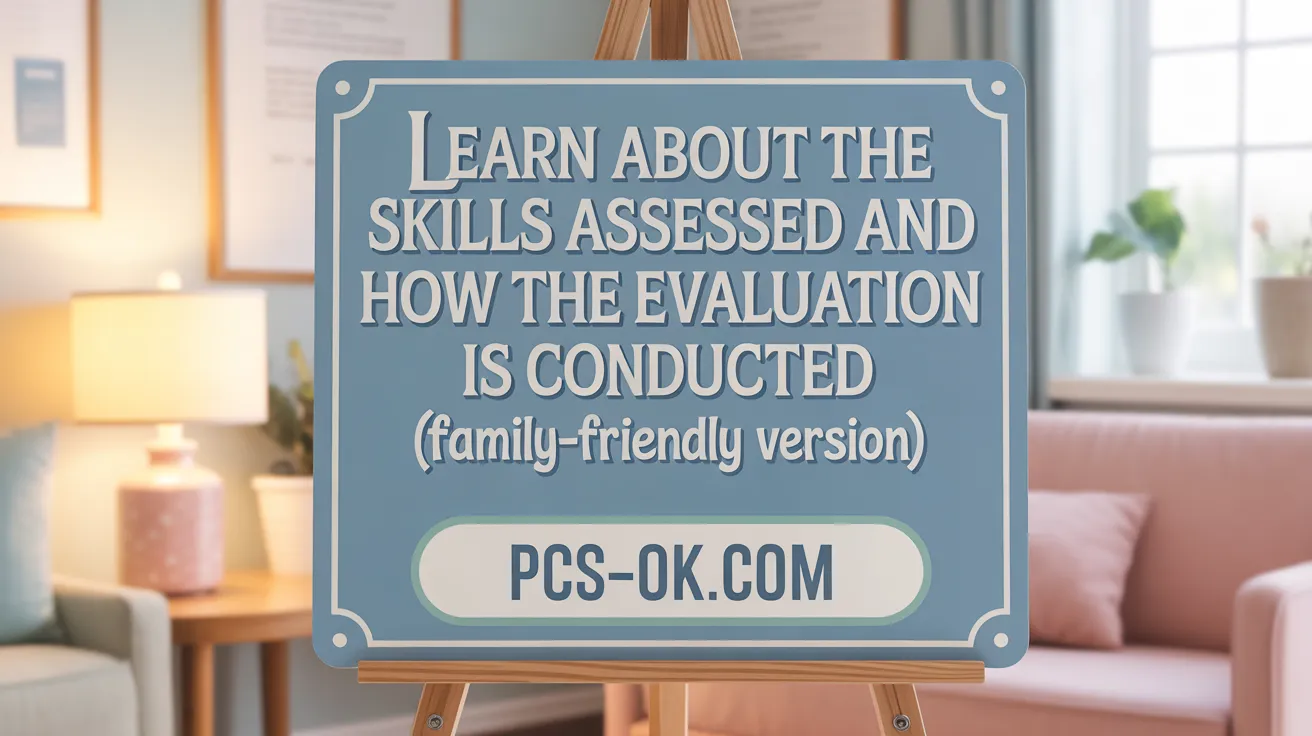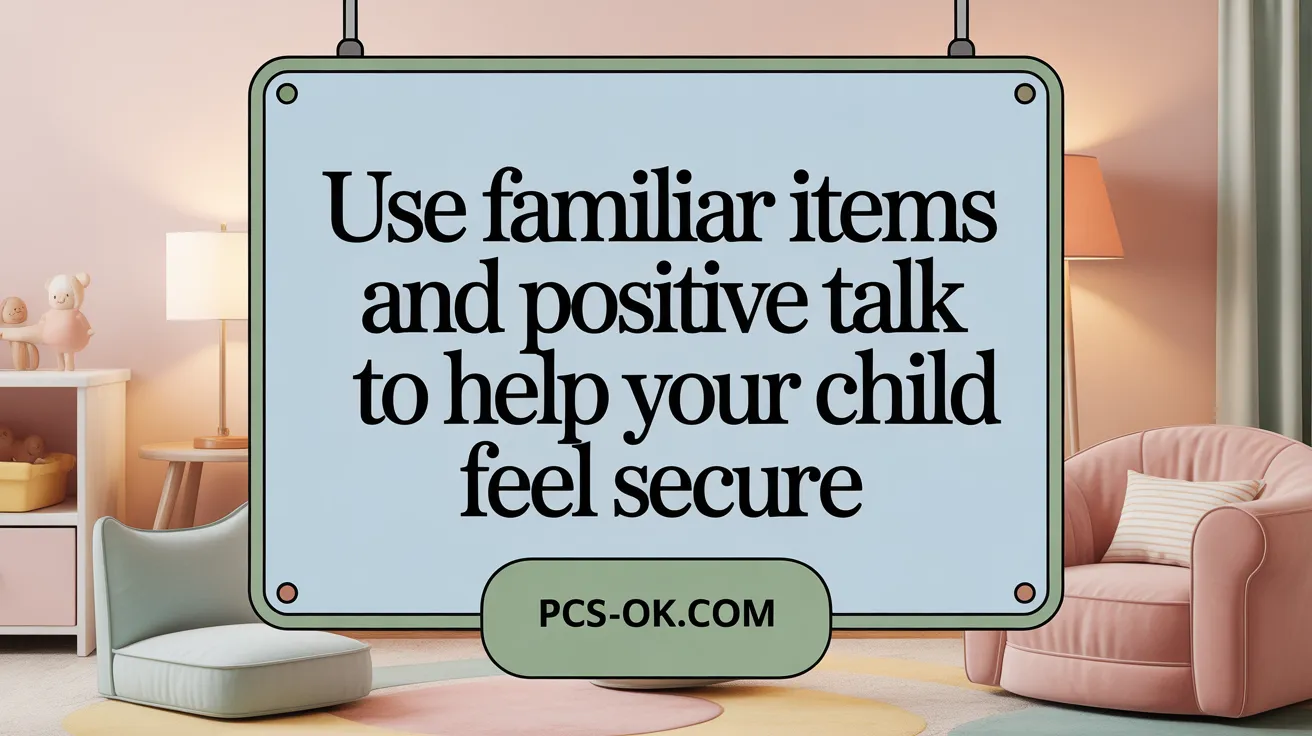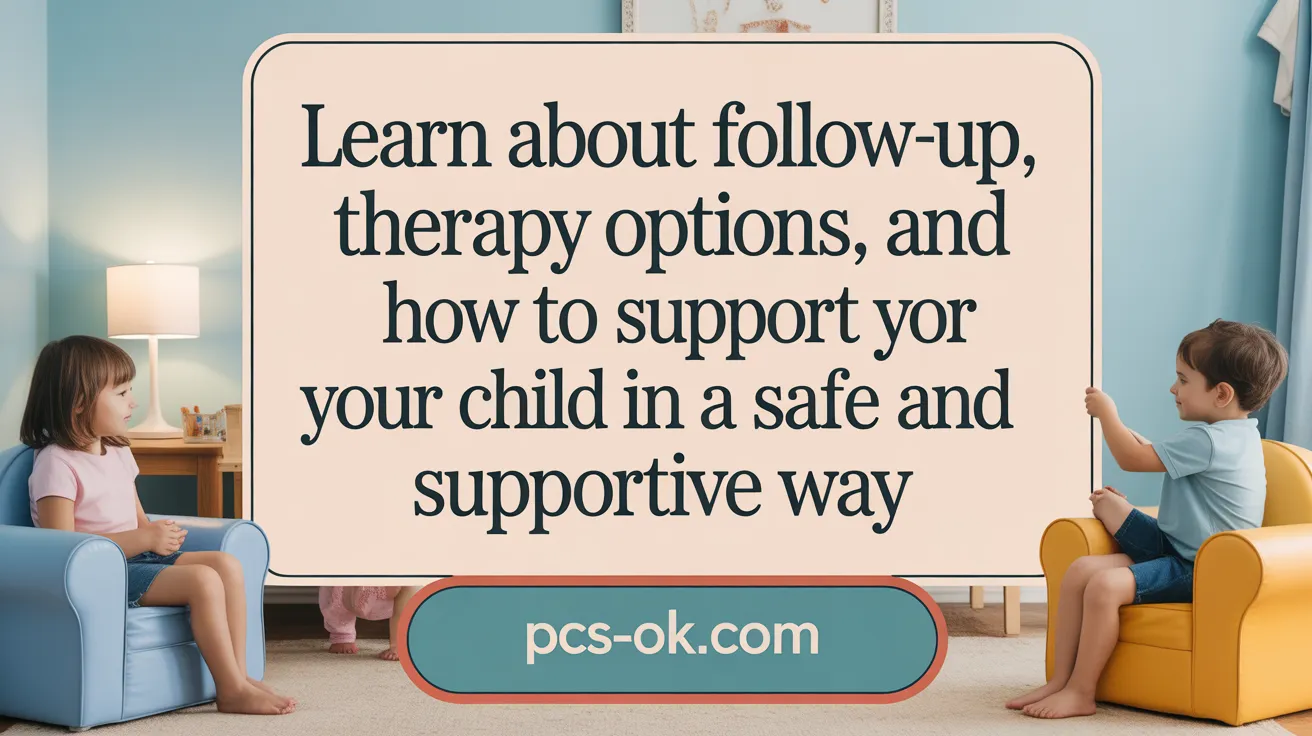How to Prepare Your Child for a Speech Evaluation
Understanding Why Preparation Matters
Preparing your child for a speech evaluation can ease anxiety and set the stage for a successful assessment. This article guides parents through what to expect, how to prepare, and how to support their child before, during, and after the evaluation process to ensure optimal outcomes.
Recognizing When a Speech Evaluation Might Be Necessary

What are typical speech and language development milestones parents should know?
Understanding normal periods of speech and language development can help parents spot early signs of delays.
Infants usually recognize voices and begin cooing and babbling by 4 to 6 months. They respond to their names and start to understand simple words.
By around 12 months, most children say their first words and can follow simple instructions. Between 18 and 24 months, kids typically have a vocabulary of about 50 words and combine words into simple phrases.
Between ages 2 and 3, children form 3-word sentences, understand opposites, and use pronouns.
At 4 to 5 years, kids can tell stories, follow complex directions, and use adult-like grammar.
Recognizing these milestones helps parents support their child’s communication development and identify early signs of delay.
Keep in mind that individual differences are normal, and professional advice should be sought if concerns arise.
What are the signs that may indicate a child needs a speech evaluation?
Certain behaviors and developmental patterns suggest it might be time to consult a speech-language pathologist. If a child shows persistent difficulty pronouncing sounds, has limited vocabulary, or struggles to form sentences appropriate for their age, these are red flags.
Other signs include not responding to their name, refusing to speak, or showing selective mutism. Challenges in understanding simple commands by age two or excessive frustration when communicating are additional indicators.
Unintelligible speech, delays in reaching speech milestones, stuttering, difficulty following directions, or unusual speech patterns also warrant assessment.
Early identification allows for effective intervention, potentially improving communication skills and supporting overall growth.
| Milestone/Red Flag | Typical Age or Behavior | Importance |
|---|---|---|
| First words | 12 months | Recognizing normal speech development |
| Combining words | 18-24 months | Early communication skills |
| Using 3-word sentences | 2-3 years | Building complex language |
| Not responding to name | Age 2 or older | Possible delay or hearing issue |
| Limited vocabulary | Any age | Potential speech development concern |
| Unintelligible speech | As speech develops | Sign of articulation issues |
| Trouble following directions | Any age | May indicate language or cognitive delay |
Being attentive to your child’s unique development and seeking professional guidance when needed can ensure their communication skills develop healthily.
Preparing Your Child and Yourself for the Speech Evaluation

Gathering documentation and medical history
Before the appointment, collecting comprehensive information about your child’s development and health is essential. This includes medical reports, past assessments, and any current medical equipment or medications they use. Having detailed background information helps clinicians understand your child’s unique needs.
Completing paperwork in advance
Many clinics require filling out intake forms, including case history and communication ratings. Completing these documents early ensures that the speech-language pathologist receives a full picture of your child’s history, saving time during the evaluation and allowing for a more thorough assessment.
Explaining the evaluation process to the child
To help your child feel comfortable, explain what will happen during the evaluation in simple, positive terms. Use toys, books, or role-playing to familiarize them with the setting and procedures. Reassuring your child and emphasizing that the appointment is a chance to have fun and learn about their speech can reduce anxiety.
Bringing comfort items to ease anxiety
Children often benefit from familiar objects during new or unfamiliar experiences. Bring along their favorite toy, blanket, or a special comfort item. Snacks or drinks they enjoy can also help keep them calm and cooperative throughout the evaluation.
Scheduling and environment preparation
Schedule the appointment well in advance, allowing enough time for insurance approvals and paperwork completion. Choose a quiet, comfortable environment free from distractions. Wearing loose, comfortable clothing and arriving on time contribute to a smoother experience for your child.
What else should parents know?
Ensuring all relevant documentation, such as prior reports and medical information, is ready helps streamline the evaluation. Preparing a list of words or sounds your child struggles with, as well as scenarios where communication difficulties occur, can also aid the speech-language pathologist. Supportive and encouraging communication from parents during the visit enhances the child’s confidence.
This preparation fosters a positive evaluation experience, setting the stage for effective assessment and tailored therapy planning.
What to Expect During the Speech Evaluation Process

Overview of assessment activities and tools
The speech evaluation process involves a variety of activities designed to get a comprehensive picture of a child’s communication skills. This includes formal tests administered with standardized tools to measure specific skills like articulation, vocabulary, and language comprehension. In addition, informal observations are made during play and interaction to assess social communication, pragmatics, and listening abilities.
The physical examination of the face and mouth is also part of the evaluation, helping identify any physical factors affecting speech. These assessments are often play-based and tailored to the child’s age and developmental level, making the process engaging for young children.
Typical duration and structure of the evaluation
The entire evaluation typically lasts between one and two hours. It is structured to include various assessment segments: initial interviews with parents, direct testing with the child, and observation of communication behaviors. Parents are encouraged to participate actively, providing background information and responding to questions about their child’s development.
Following the assessment, the speech-language pathologist discusses preliminary impressions, and a detailed report with findings and recommendations is sent within three weeks.
Types of speech and language skills assessed
The evaluation covers a broad range of skills:
- Receptive language (understanding words and directions)
- Expressive language (using words and sentences)
- Speech clarity and pronunciation
- Voice quality and pitch
- Fluency of speech
- Social language and pragmatic skills
- Feeding and swallowing in some cases
Auditory skills such as hearing and discrimination are also checked, especially if delays or issues are suspected.
Role of parents and child participation
Parents play a crucial role in the evaluation process. They are asked to bring relevant documents like medical reports, previous evaluations, and school records. They should also prepare a list of words or sounds their child finds difficult and note scenarios where communication breaks down.
During sessions, parents observe and can ask questions. Their insights on their child’s communication in daily life help tailor the assessment.
Children should be comfortable, so wearing loose clothing and bringing familiar toys or snacks can ease anxiety. Parents are encouraged to attend, respond to questions, and support their child’s participation.
Use of formal and informal testing methods
The evaluation combines formal tests—standardized assessments with clear scoring systems—and informal assessments, such as observing the child’s play, storytelling, and interaction with the examiner.
This approach ensures a well-rounded understanding of the child’s skills in various settings. It helps determine if speech therapy is needed and guides personalized treatment planning.
| Aspect | What Is Assessed | Additional Details |
|---|---|---|
| Speech clarity | Articulation and phonology | Formal tests and observations |
| Language skills | Vocabulary and sentence structure | Both receptive and expressive |
| Social skills | Pragmatics and interaction | Play and conversation assessment |
| Cognitive abilities | Attention and memory | Observed during tasks |
| Oral motor skills | Face and mouth movements | Physical examination |
Understanding what to expect during a speech evaluation helps families prepare effectively, supports active participation, and paves the way for successful therapy outcomes.
Supporting and Comforting Your Child Before and During the Evaluation

Preparing a child emotionally for a speech evaluation can make a significant difference in their experience. Parents play a vital role in creating a supportive environment that reduces anxiety and fosters confidence.
One effective strategy is to establish a calm and familiar setting. Bringing along favorite toys, blankets, or objects that provide comfort can help the child feel secure. Maintaining routines, such as a familiar snack time or a specific way of saying goodbye before the appointment, can also ease nervousness.
Using familiar items and routines isn’t just comforting—it’s a way to make the process predictable. Singing favorite songs or playing simple games before and during the evaluation can keep the atmosphere friendly and relaxed. Visual schedules or social stories explaining what will happen at the appointment can help the child understand and feel in control.
Clear communication and encouragement are essential. Parents should talk about what to expect in positive terms, emphasizing that it’s a fun activity designed to help them. Giving the child choices, like which toy to bring or what snack to have afterward, empowers them and promotes language use.
Throughout the assessment, praising their efforts and progress can reinforce confidence. Parents can rehearse talking about topics their child enjoys or practice new words to prepare them for engagement with the speech-language pathologist.
Building trust is crucial. Introducing the child to the therapist beforehand, possibly through a quick visit or a photo, helps establish familiarity. Understanding and respecting the child’s routines and challenges further support their emotional health.
Maintaining a positive environment—bright, cheerful, and distraction-free—encourages focus and cooperation. Overall, these strategies help create a supportive atmosphere that promotes a successful, less stressful evaluation process for your child.
After the Evaluation: Understanding Next Steps and Ongoing Support

What are the next steps after a speech evaluation?
Once the speech-language pathologist completes the assessment, they will review the findings and discuss them with the child’s family. This conversation includes details about any diagnosis, the child’s strengths, and areas that need improvement. If therapy is recommended, the therapist will help schedule ongoing sessions. These can range from weekly appointments over several months to more intensive programs.
During this process, therapists might provide strategies and activities parents can practice at home to reinforce skills. It is also advisable for families to reach out to community resources such as school districts or early intervention programs if long-term support is necessary. If the evaluation indicates no immediate need for therapy, parents should continue monitoring their child’s development and stay alert for any new concerns.
Additionally, verifying insurance coverage beforehand helps avoid surprises and ensures the chosen services are feasible financially. Gathering relevant medical and educational records before appointments can also streamline future planning and help providers better understand the child’s needs.
How can parents discuss speech therapy with an older child?
Talking to an older child about starting speech therapy requires a gentle, positive approach. Parents should explain that therapy is like wearing glasses—they help with things that are challenging and make communication easier. From the outset, involving the child is essential. Ask what they want to improve and help set achievable goals, making them feel in control and motivated.
Choosing everyday moments for these conversations makes the discussion feel natural and less intimidating. Listening carefully to their feelings and concerns fosters trust and openness. Highlight that having speech difficulties doesn’t define who they are and that everyone grows and improves in different areas.
Making the process fun can encourage engagement. Incorporate their interests by using games, apps, or silly voices, which can make therapy seem more like a fun activity than a chore. This positive framing often leads to better participation and progress.
Monitoring a child’s response and providing ongoing support through regular talks and encouragement help them adapt to therapy and view it as a helpful, normal part of their development.
In summary, transparent communication, active participation, and a supportive attitude are essential for discussing speech therapy effectively with older children.
| Aspect | Details | Tips |
|---|---|---|
| Sharing Results | Review by pathologist, diagnosis, strengths, improvements | Transparent and supportive discussion |
| Scheduling Therapy | Arrange sessions, plan activities, consider home practice | Start promptly, gather necessary records |
| Monitoring | Observe progress, follow-up assessments | Keep communication open with therapists |
| Talking with Older Kids | Use positive language, involve in goal-setting | Make it fun, be empathetic |
| Collaboration | Work with schools, therapists, and family | Maintain open communication and teamwork |
Understanding these next steps can help families feel more prepared and supported as they navigate their child’s speech development journey.
Empowering Your Family Through the Speech Evaluation Journey
Preparation, understanding, and support are key to helping your child navigate their speech evaluation confidently. By recognizing early signs, gathering important information, and maintaining a positive and comforting atmosphere, parents can contribute significantly to the success of the evaluation and any subsequent therapy. Open communication with your child and the speech-language pathologist ensures tailored support that meets your child’s needs while fostering growth in their communication abilities. With the right approach, this process becomes a meaningful step toward empowering your child’s voice and overall development.
References
- How Do I Prepare for My Speech-Language Pathology Visit
- Speech Evaluation: WHAT CAN I EXPECT DURING MY …
- How to Prepare for Your Child’s First Visit with a Speech …
- How to know if your child needs a speech-language …
- When Your Child Needs a Speech Therapy Evaluation …
- How to Talk with Your Older Child About Starting Speech …
- Speech and Language Evaluations
- What to Expect at a Speech Evaluation
